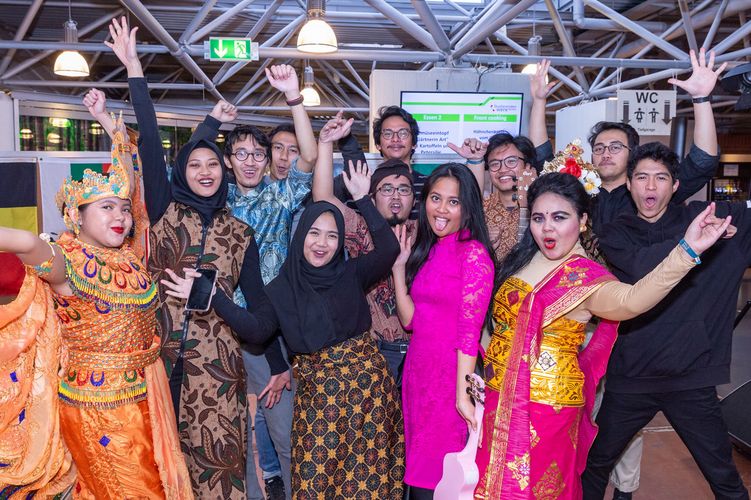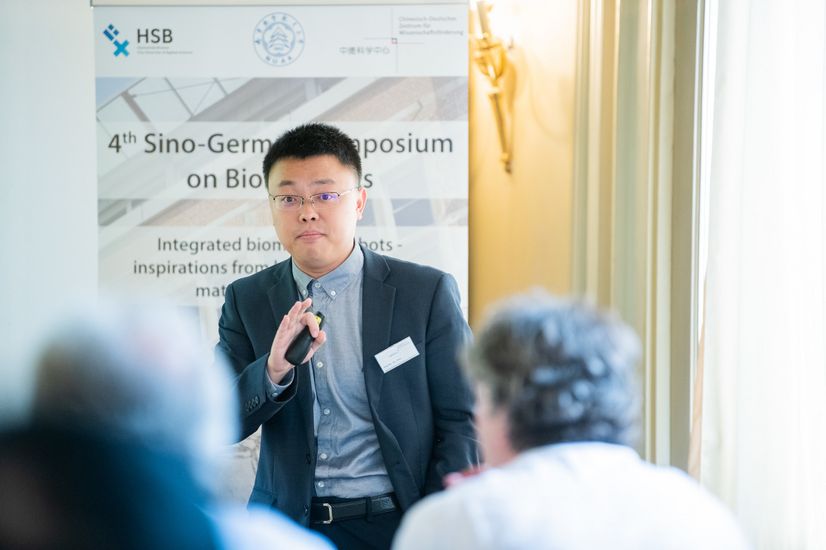
Our profile
We continue to develop our profile as an outstanding international brand. We breathe life into internationality and cosmopolitanism. We shape perspectives in an international context with a strong focus on intercultural and international competences – excerpt from HSB’s mission statement.
Internationality enjoys a high priority at HSB – at all levels: from international degree programmes, through exchange and cooperation in research, to strategic projects.
We live international and intercultural exchange in many ways. At the heart of these concerted efforts is the student exchange with our international partner universities worldwide; other examples include international degree programmes offered across countries, academic symposia and research projects, regular exchanges and the individual mobility of teaching staff, researchers and administrative employees. In international, strategic partnerships, we work in networks on today’s global challenges and offer attractive study opportunities worldwide.
In a globalised world, international and intercultural skills are essential success factors for a professional career. HSB recognised the importance of this early on and was one of the first universities nationwide to create international degree programmes with integrated stays abroad. Spending time abroad is now an integral part of the curriculum in more than half of our degree programmes. Around 60 percent of HSB graduates gain experience abroad during their studies.
We also create a reliable framework for all students that makes it possible to gain international experience during their studies. A cornerstone of internationality at HSB are the more than 370 cooperation agreements with universities and diverse companies and organisations worldwide. In some cases, international cooperation dates back to the early days of HSB, such as with the Technical University of Gdansk in Bremen's twin city, and we are constantly developing our network.
In line with their professional and personal interests, the world is open to HSB students in a variety of ways during their studies.
HSB has been involved in Erasmus+ and PROMOS for a long time. Thanks to the promotion of international mobility through these partial scholarship programmes, the number of students at HSB who spend a semester abroad has risen continuously.
Proportion of international study programmes
University cooperation in 66 countries
of graduates gain experience abroad during their studies A cosmopolitan campus
University life on campus is also international and multicultural: More than 250 exchange students from around 70 countries come to HSB every year to study with us for a semester, and approximately another 250 international students take part in our international Summer School. HSB students also have diverse cultural roots. This is an asset for us. International guest lecturers enrich campus life.
At the International Graduate Center IGC, the importance of exchange across national borders can already be seen in the name. Students from more than 60 countries study in the predominantly English-language Master's and MBA programmes at the IGC. The International Day is all about openness to the world: returnees talk about their experiences abroad and international students present their home cultures. The programme of information, culture and culinary delights is an annual highlight in the HSB's catalogue of events.
The international orientation is also noticeable in the structure of the HSB. Responsibility for internationality lies at the highest level, namely with the Rector. In addition to the central International Office, each faculty has a decentralised International Office, which advises HSB students going abroad and looks after students from partner universities coming to Bremen. Last but not least, a number of HSB research institutes deal with international issues from various scientific perspectives. We actively promote international research collaborations.
Since 2005, we have maintained contacts with universities in North and South America through UAS7, an association of seven research-intensive universities of applied sciences, and its office in New York as well as a representative office in Brazil. In the joint project UAS7 Virtual Academy, a platform for long-term international teaching cooperation is being created through which innovative teaching and learning formats are to be established.
In 2020, together with universities in the Netherlands, Portugal, Finland, Ireland and Romania, HSB founded the alliance STARS European University. The aim is to establish a new type of transnational university model in order to contribute to the sustainable development of the regions and Europe.
As a member of the European University Association, HSB participates in educational and research policy exchange at the European level.


